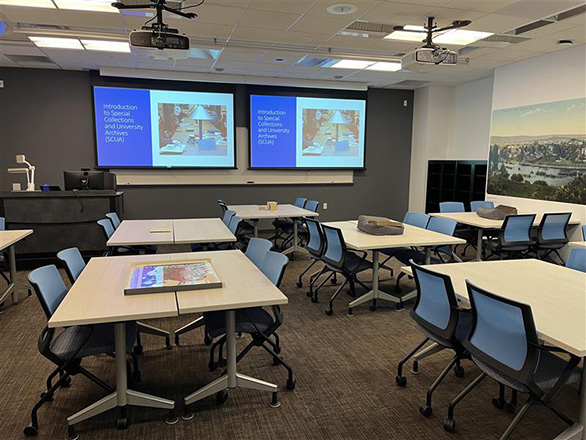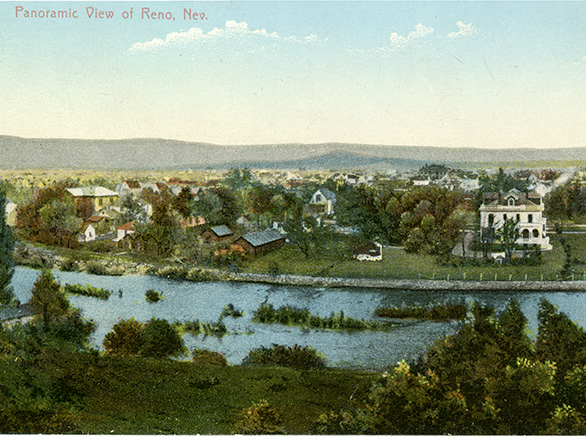Special Collections and University Archives instruction
We are pleased to support the educational goals of the University of Nevada, Reno instructional faculty. On this page you will find information about the spaces we have for class visits, some primary source lesson plan templates, and a form for requesting instruction sessions. Please make requests at least two weeks in advance.

What we offer
Choose from our lesson plan templates, or we can work with you to develop a customized lesson. Each of the templates includes an introduction to Special Collections and University Archives and a hands-on activity to help students learn about primary source research.

